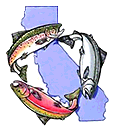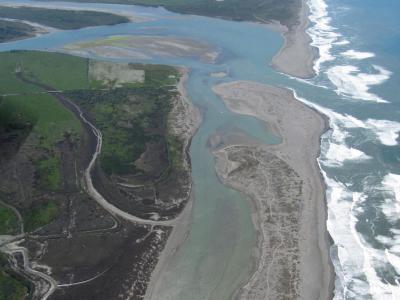Climate Change: Effective Restoration for a Warming World
Session Coordinator:
Joshua Strange, Stillwater Sciences
Overview: Accelerating climate change is consistently outpacing modeled predictions, the scale and speed of which effects all aspects of salmon conservation and restoration. Successfully accounting for climate change in restoration planning and implementation requires, in part, 1) accurately anticipating climatic changes resulting impacts at sufficient resolution; and, 2) having effective compensating and mitigating tactics and techniques. The degree to which restoration practitioners can understand and incorporate such information will have a strong influence on the long term performance of projects and the productivity of salmon populations. This session will inform practitioners on up-to-date anticipated impacts of climate change and provide examples of effective tactics through analysis or implementation.
When It Rains It Pours, But Not Very Often; Implications for Climate Change Considerations for Southern California Steelhead Restoration
Stacie Fejtek Smith, NOAA Restoration Center
Spatial and Temporal Variability in Baseflow Magnitude and Dry Stream Channels in the Mattole River Headwaters: Implications for Salmonids and Restoration
Nathan Queener, Mattole Salmon Group
Availability of Thermal Stratification and Refugia in the Middle San Joaquin River System
Nathaniel L. Butler, Ph.D., University of California, Berkeley
Use of GIS Technology to Prioritize the Restoration and Protection of Anchor Habitat Riparian Areas in the Rogue River Basin
Eugene Wier, The Freshwater Trust
Climate Change, Drought, and the Future of California Salmonids
Peter B. Moyle, Center for Watershed Sciences and Department of Wildlife Fish and Conservation Biology, UC Davis
Survive, Thrive, or Die? Adapting California’s Water Infrastructure to Help Salmon in the Face of Extreme Climate Change
Joshua Strange, Ph.D., Stillwater Sciences

